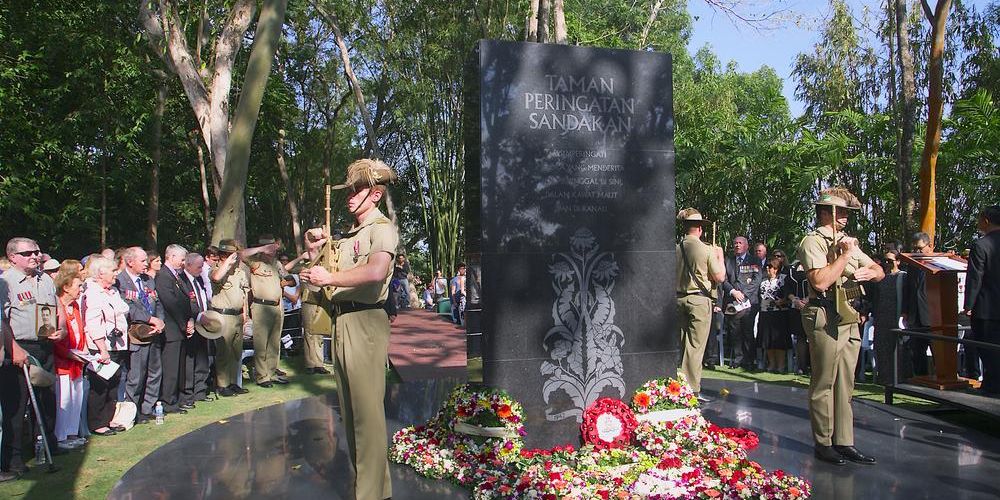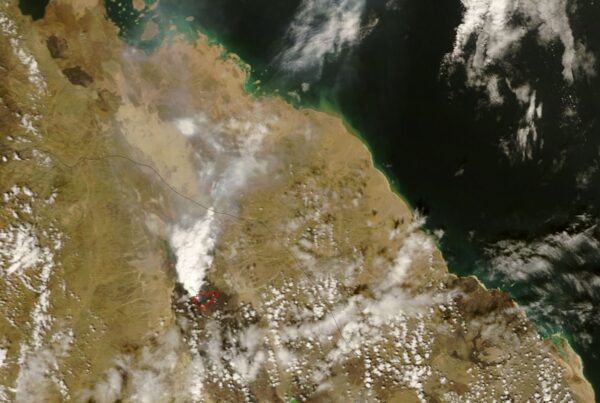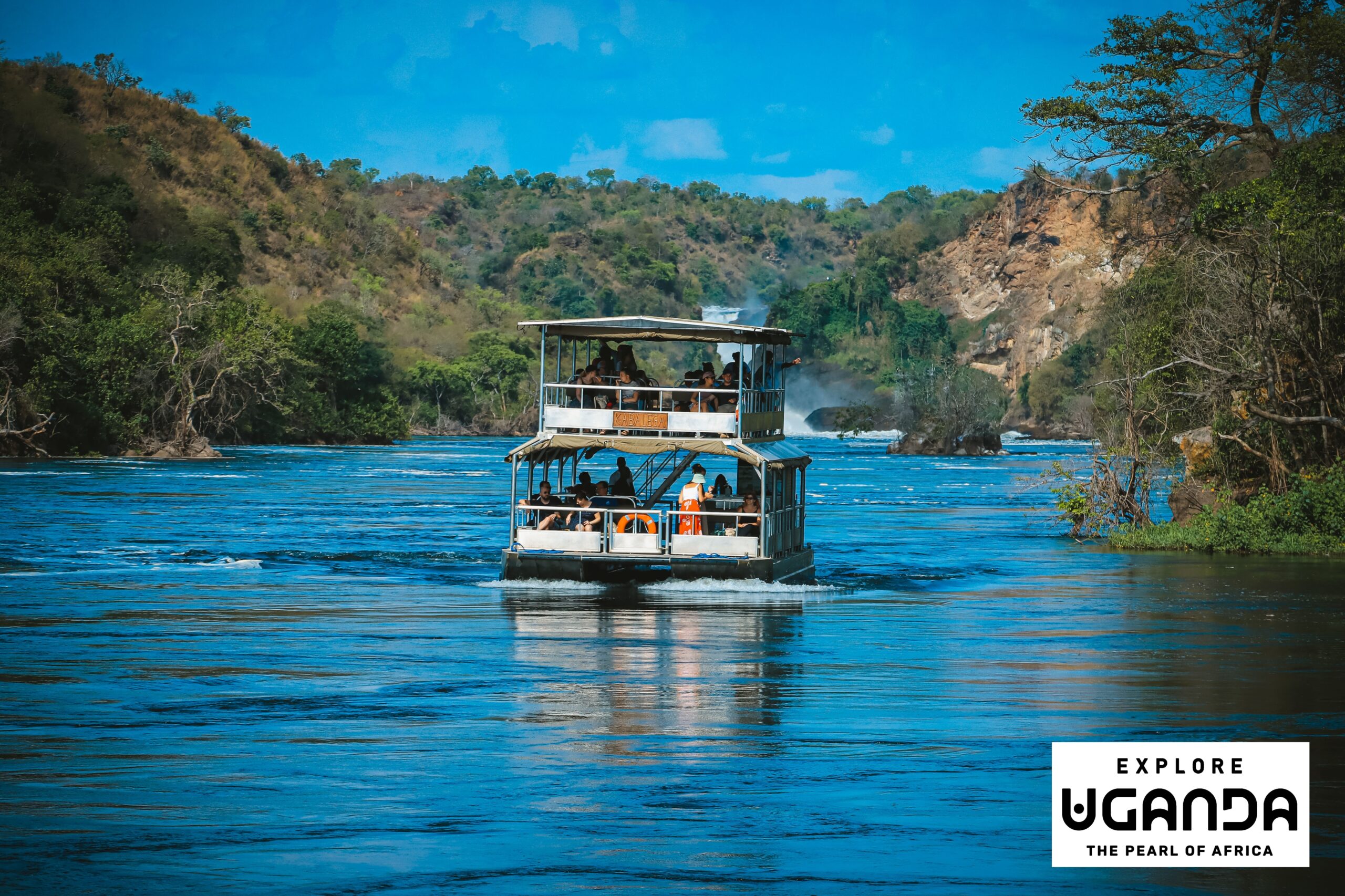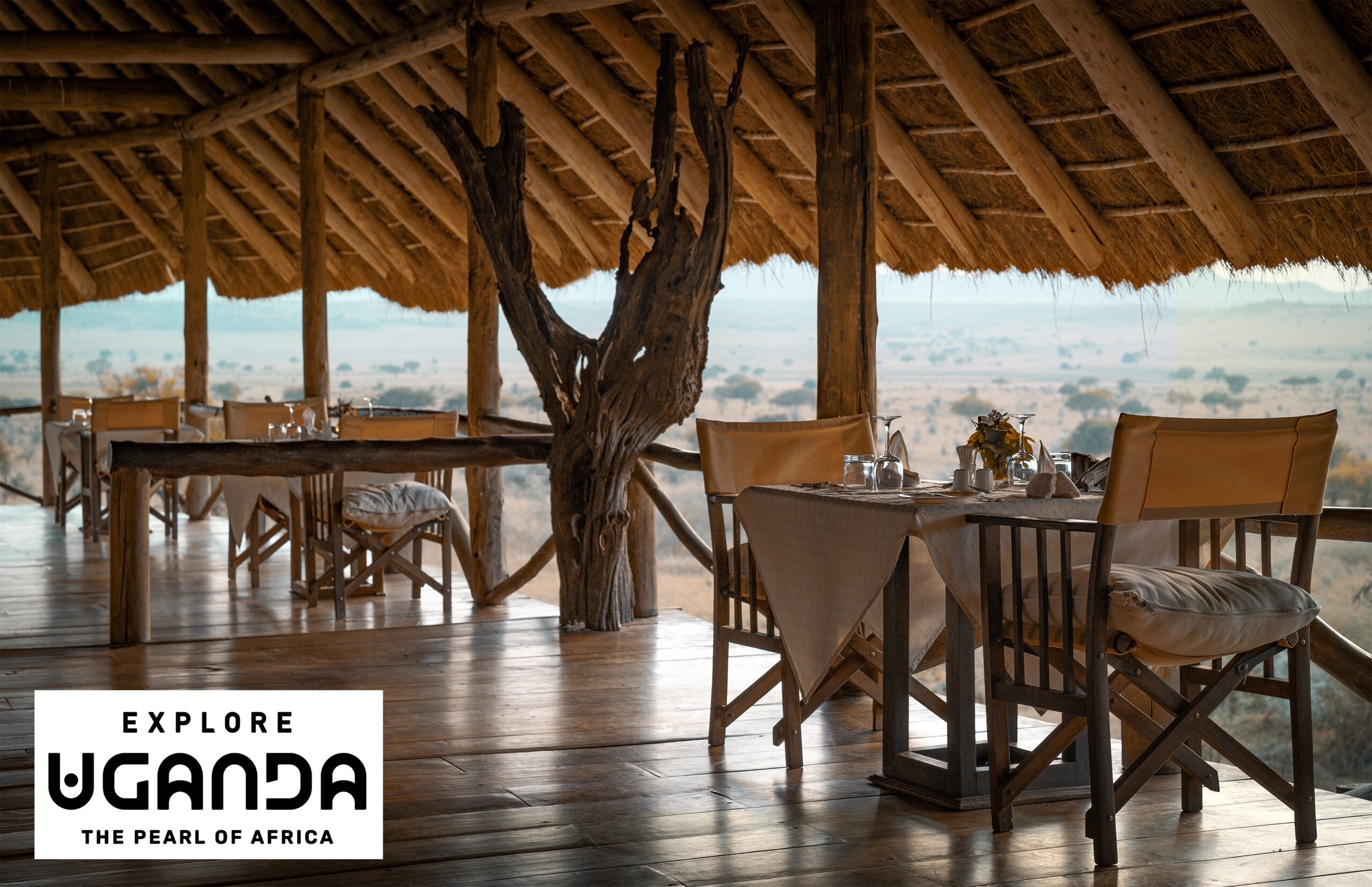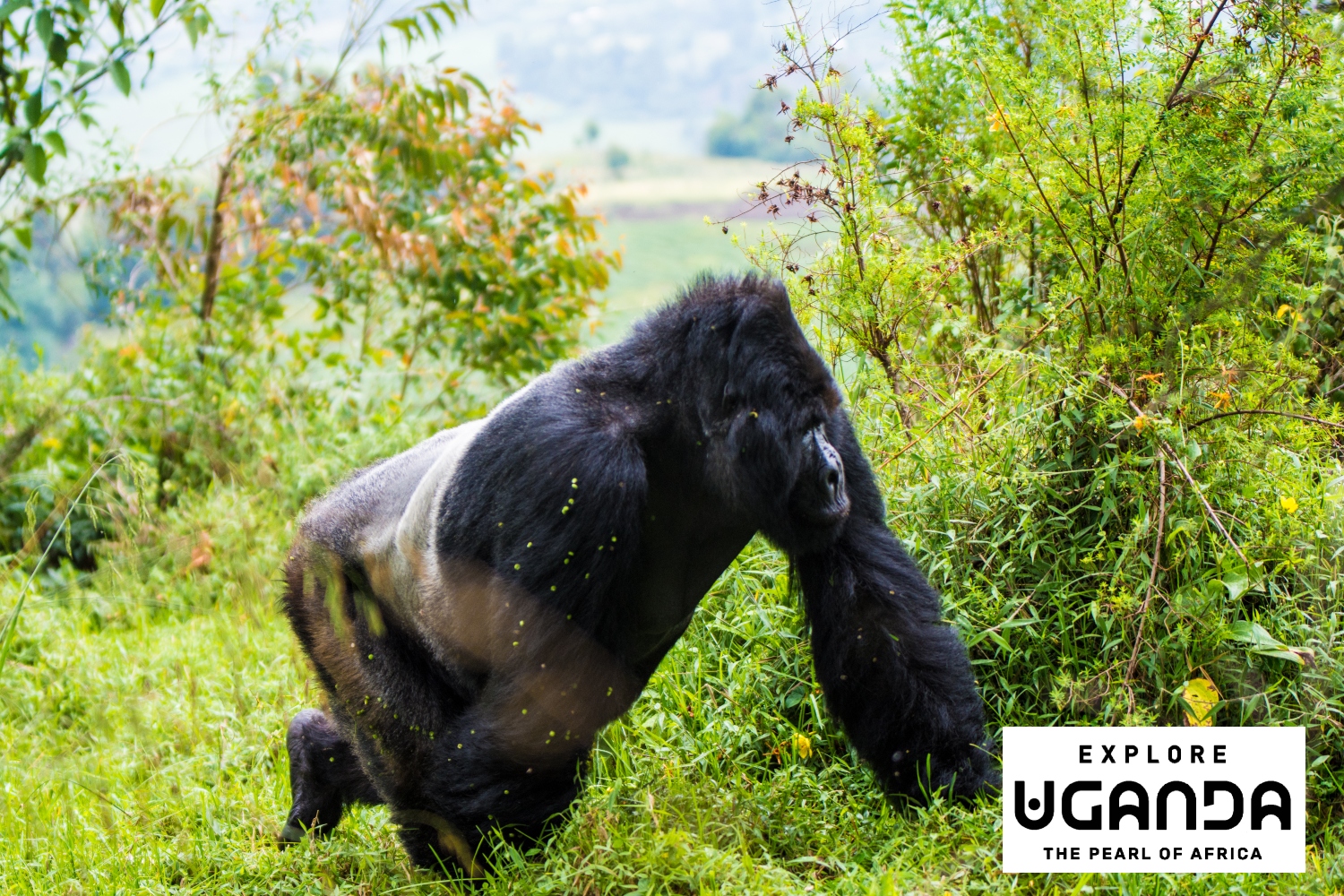On 15 August 2025, Australians, Sabahans, and guests from across the Commonwealth gathered at Sandakan Memorial Park in Sabah, Malaysia, to mark the 80th anniversary of the Sandakan–Ranau Death Marches, one of the most tragic and defining chapters of World War II for Australia.
Commemorating the Past
The Sandakan Day Memorial honours the more than 2,400 Australian and British prisoners of war who were held captive in Sandakan between 1942 and 1945. Subjected to brutal conditions and forced marches through unforgiving terrain, only six Australians survived, their survival owed in part to the courage and compassion of local Sabahans who risked their lives to help.
This year’s ceremony drew dignitaries including Australian High Commissioner to Malaysia, Her Excellency Danielle Heinecke; British High Commissioner, His Excellency Ajay Sharma; and New Zealand High Commissioner, His Excellency Michael Wehi Mailetonga Walsh.
Australian High Commissioner Heinecke reflected on Sandakan’s place in Australia’s wartime history, calling it “the single greatest atrocity committed against Australia in World War II.” She reminded the audience: “For Australia and all Australians, the phrase ‘lest we forget’ is not just words, it’s a promise.”
Sabah Chief Minister Datuk Seri Panglima Haji Hajiji Haji Noor, in remarks delivered on his behalf, described the memorial as a “living bridge to forge understanding, friendship and trust between Sabah, Australia, and Britain,” affirming Sabah’s commitment to preserving this legacy for generations to come.
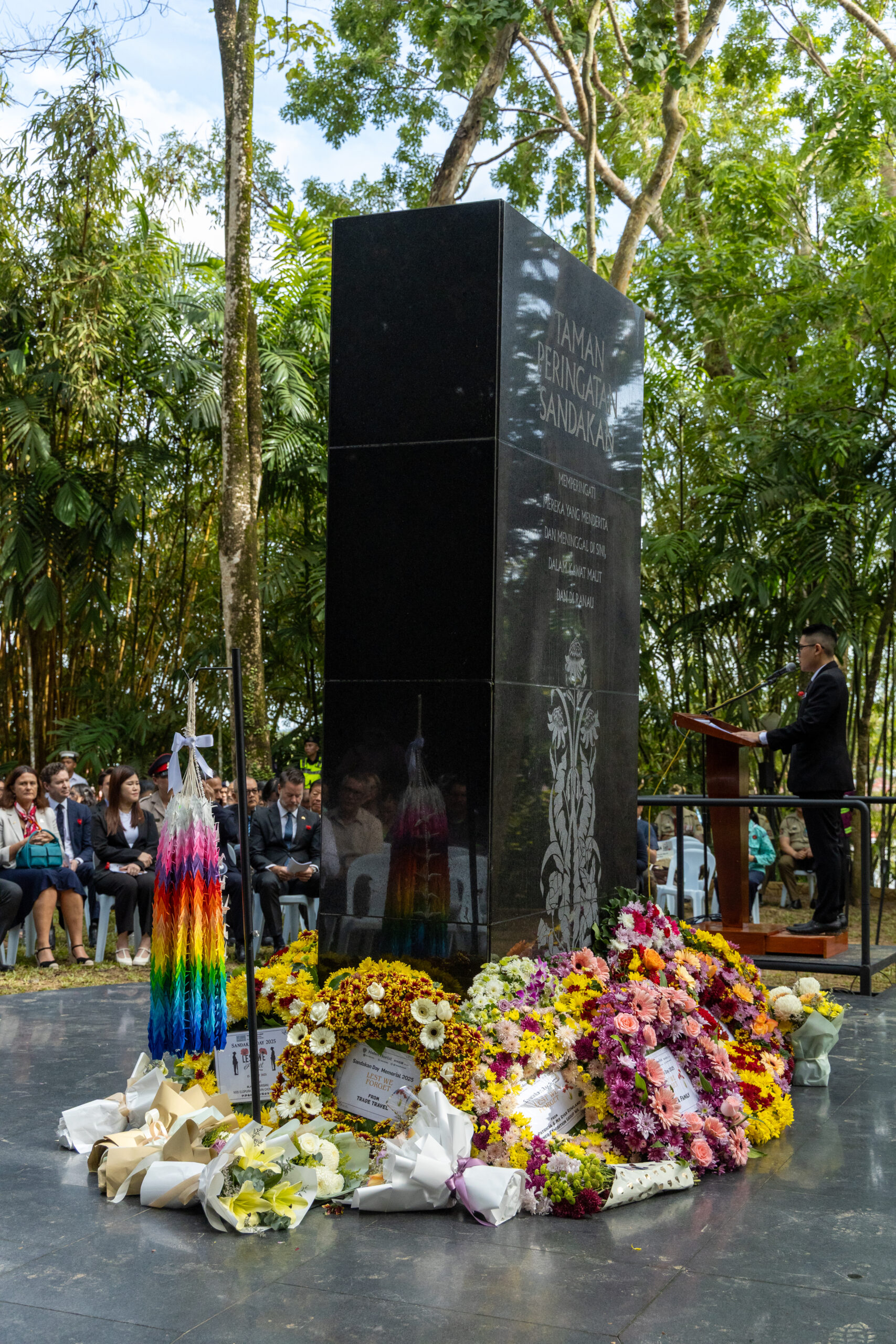 A Shared History
A Shared History
This year’s milestone anniversary was a poignant reminder of the endurance, sacrifice, and compassion that emerged from one of the darkest chapters in shared wartime history.
The memory of the six Australians who survived, saved in part by the courage of local Sabahans, was honoured alongside the countless locals who lost their lives for their acts of defiance and humanity.
Following the official speeches, the service proceeded with the recital of a poem, the roll call of the fallen, official wreath laying, the Ode of Remembrance, a minute of silence, the Rouse, and the national anthems of Australia and the United Kingdom.
In a gesture of peace and reconciliation, a group of Japanese students and families also took part in the commemoration, presenting a thousand origami cranes, a symbol of healing and remembrance in Japanese tradition. Their presence offered a quiet reminder that Sandakan is not only a place of mourning, but also of healing and shared humanity.
The Sabah Tourism Board reiterated its commitment to ensuring that Australians, Britons, and visitors from around the world continue to have the opportunity to reflect on this history while also experiencing Sandakan’s natural and cultural treasures. The Sandakan Day Memorial remains both a tribute to the fallen and a celebration of the enduring friendship between Sabah and Australia.
A Place of Remembrance and Healing
Today, Sandakan Memorial Park stands on the site of the former prisoner-of-war camp. Amid its serene grounds, visitors can walk through landscaped gardens, view remnants of camp structures, and read interpretive displays that piece together the stories of the fallen.
For Australians, a visit to Sandakan is more than a journey, it is an act of remembrance and healing. Standing where history unfolded allows travellers to connect with the past in a deeply personal way.
Beyond the Memorial
While the Sandakan Memorial Park is the focal point for commemoration, the surrounding region offers visitors a chance to experience Sabah’s renowned natural and cultural beauty. From the wildlife of the Sepilok Orangutan Rehabilitation Centre to the diverse ecosystems of the Kinabatangan River, Sandakan is also a gateway to some of Borneo’s most remarkable landscapes.
This blend of solemn history and natural wonder makes Sandakan a meaningful destination: a place where remembrance coexists with discovery.
A Living Legacy
Eighty years on, the Sandakan Day Memorial continues to honour the sacrifices of those who suffered and perished, while also reminding us of the resilience of human compassion in times of darkness. For Australians, a visit to Sandakan is both a tribute to the fallen and a reaffirmation of the enduring friendship between Sabah and Australia.
Lest we forget.
